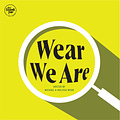Wear is the Love Episode 18
Should student loans be forgiven? By how much? At what income level? Just undergraduate loans, or should graduate loans be included? How might the politics of this issue affect the midterms?
We discuss each of these questions in this latest episode. Student loan debt forgiveness is all over the news, and it’s a potential midterm football. Our stances on the matter differ, but we hope you come out with a greater sense of the nuances of this complicated policy issue.
Episode notes:
Brookings: “Student loan debt is regressive…”
Roosevelt Institute: “Student loan debt is progressive…”
The Top 5 articles for your week
“The Technocrats Dilemma” (The New Atlantis)
Because “This is the fundamental mystification of technocracy: that public policy can and should be a technical matter for specialists. We are, as Habermas puts it, subjected to “the illusory attempts of the technocrats to have political decisions be directed only by the logic of objective exigency” — or, as it’s put so often lately, we must “follow the science.” But policy, quite obviously, cannot in itself be scientific. Science or expertise should be employed in making decisions about policy, but politicians and the experts advising them must ultimately make recommendations and decisions based on values, practical and moral commitments, and political realities and possibilities. These are not scientific and, in a genuine democracy, are meant to be subject to vigorous debate.”
Because “digital nomads” are potentially changing the way we think about work and where we work.
“As Pandemic Aid Ends, Struggling Families Face a Housing Nightmare” (Washington Post Magazine)
Because even as we talk about student loan debt forgiveness in the podcast, housing is another crisis for many people that we believe is worthy of similar policy scrutiny.
“The Hustler at the End of the World” (The Verge)
Because some people saw the pandemic in March 2020 and saw it as an opportunity, exposing the vulnerabilities of pandemic-ridden societies. “Many people feel as though the past two years were stolen, wiped from the calendar and replaced with a long and empty slog. Nearly a million Americans have died of COVID, but mask mandates and vaccine requirements are ending, and the country is ready to move on, variants be damned. Kaplan still views the pandemic as an opportunity, a gift of perspective that will shape the rest of his days. Money is great and all, but as he saw with Rob, you can’t take it with you. “Time is the most precious and finite commodity you have,” Kaplan said.”
“In the Dark” (Rest of World)
Because, “Over the last six months, Rest of World spoke to more than 70 technologists, telecomms experts, activists, and journalists from around the world to track how governments’ control over the internet has grown and evolved during the past decade. Their testimony shows that the free, open, global internet is under severe threat. Telecomms blackouts and mass censorship risk fragmenting the internet and even undermining its physical integrity. These threats come in many forms, but most of the experts we spoke to trace them back to a watershed moment, 11 years ago in Cairo, when, facing a mass protest movement that was evolving and growing online, the Egyptian government turned off the internet.”







Episode 18: The Student Loan Debt Debate